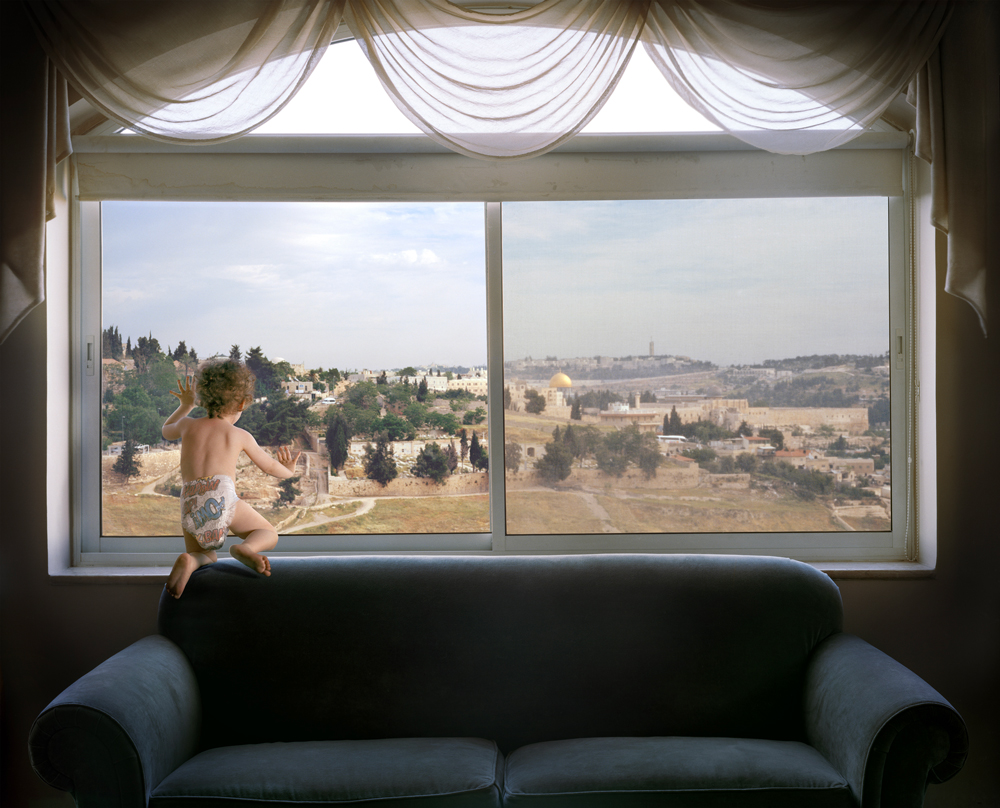
Lire cet article en français – Read this article in French
It is as a Frenchman and as a Jew, in love with these two identities, with their history and their shared values, with what they convey about the Western soul and civilization, that I call for replacing the temptation of fatalism and despair with resolute action in favor of lasting peace and life. I fervently believe in an approach and in solutions which will not immediately be favorably received by the majority of those I belong to, but which seem eminently necessary to me.
For many of us, the last few days have been some of the hardest in our lives.
As far as I am concerned, I have hardly slept since October 7th. And with every passing day, the ever-increasing human toll seems to give more and more reason to cry.
Over 1,300 killed in Israel: the largest massacre of Jews since the Holocaust. Young people who were celebrating life; families who had barely woken up in their beds; children who thought they would spend this long Simchat Torah weekend playing, rather than dying under the bullets, fire and blades of blind and murderous hatred.
Ten times the casualties of the November 2015 Paris attacks. Difficult to fathom, yet true. Enacted on a country whose population is eight times smaller than that of France.
Hamas does not want peace. It only serves its own interests, its own extremist religious madness. It seeks neither the liberation, nor health, nor happiness of the Palestinian people; it only loves death – death of the Jews, above all, but also that of those it claims to represent.
Faced with such horror, Israel can do nothing other than defend itself. It has the right to do so. This should be clear to any reasonable, non-antisemitic person.
And yet, after all the anguish and anger, what I first noticed was the deafening silence of non-Jews around me. Of most of them. Did this massacre occur too far away for them to care? Or, are they simply not aware of the magnitude of what is going on? Don’t they know that our collective responsibilities are at stake?
Rather, I believe the main reason for this silence is that – and every Jew should realize this – Israel has long ago lost the war of images and hearts. It has lost this battle by choosing, or resigning itself to, the approach its government has been promoting for ten years: that of sheer force to ensure the security and continued existence of the State and of its population – even if it sometimes meant infringing on international law; even if it meant allowing despair and the worst ideologies to thrive among Palestinians.
Second, this terrorist massacre is also, to my mind, the absolute discredit of Binyamin Netanyahu’s supposedly “security-first” platform. For all its populist grandstanding, it has proven utterly incapable of preventing the worst possible scenario from happening. Incapable of fulfilling its most essential mission, that which it has consistently used as justification for a lackluster political process. “Peace is not advancing, but at least you are safe”, it claimed. No, Israel is not safe under your watch, Mr. Netanyahu, or precisely because of it.
What has happened should be taken as a warning sign, a ringing alarm bell, telling us that the policy Israel has been pursuing for the past decade is headed straight into a brick wall. If “security-first” policy alone, if war after war against Hamas and the Islamic Jihad cannot prevent this, if, in fact, they actually foster such hatred that thousands of terrorists are ready to commit these heinous crimes, we are collectively left with a simple alternative: utter despair or choosing a new method.
We must first, of course, get rid of Hamas and its allies. Punish those responsible for this massacre, as well as their supporters, in the strongest possible way.
But, in a few weeks, in a few months’ time, we will also need to give Palestinians a reason to hope, rather than to perpetuate the cycle of hatred. It is absolutely vital that, without any cynicism, we advance the cause of a definitive resolution of this conflict, both from the standpoint of women and men on the ground and from the standpoint of international law. Such a settlement can only be the result of pledges made by Israel for the establishment of a sovereign Palestinian State; that said State will have to accept to live in peace with its neighbour. We must stop making accommodations for far-right settlers of the religious right, and instead tell them: “leave these settlements in Judea-Samaria (the West Bank), come back and reside within Israel’s accepted borders. Or, if you had rather, feel free to stay, but the army will move way and will no longer be busy protecting you”.
We must all – Jews of the Diaspora, Israeli civil society, international community – collectively make a commitment to end this conflict, so that never again Jewish families live such a nightmare; so that never again anyone gives any sort of justification or excuse to pogroms; to honour our values of democracy, humanism and liberty, which set us apart from criminal and extremist ideologies.
To those who might object that making peace with an aggressor is impossible; that Palestinians will never accept peace with a sovereign Jewish State in Israel: I reply that it is simply an absolute necessity. Israel cannot remain a thorn in the side of international law, nor a motive for endlessly renewed hatred for 80 years. In 1978, five short years after the terrible Yom Kippur war, Israel made peace with Egypt, and thereby made itself safer than it had ever been previously. Yitzhak Rabin and Shimon Peres, later, understood this same point, and almost achieved peace – before the former was murdered by an extremist of his own people, and the latter became discouraged.
I believe this project should be communicated as clearly as possible to Palestinian populations, so that hope may be reborn, and terrorism may lose its current feeding ground. Winning Palestinian hearts to this hope is the best possible way to ensure Israel’s long-term peace, and to weaken all those hatred-wielding groups that feast on resentment and despair – including the Iranian regime.
Israel must be irreproachable with regards to international law; it now seems obvious that not being so is not any kind of safety guarantee. My deep wish is that Israel, under the auspices of an international agreement, might negotiate to keep the Golan Heights – which ensure its safety from Syria – and, of East-Jerusalem, keep only the Old City up to and including the Kotel (Wailing Wall), offering its easternmost part as the capital city of a future Palestinian State. Or, alternatively, one could imagine a unified city under the shared sovereignty of both States? A new yet-to-be-invented notion of international law, perhaps, but why not?
Wouldn’t Tzahal’s soldiers be better employed defending such borders, rather than occupying the West Bank? Jordan is no longer at war with Israel. Syria would be kept at bay from the Golan. Occupation, checkpoints, permanent controls only serve to reinforce the resentment of the Palestinian population. An occupying force has never won by occupying.
Without this eye opening, without such measures, the conflict will have no enduring resolution nor justice; Israel will be permanently unsafe.
The West must, with all its might, support Israel in its fight against terrorism; the Israeli government must come to its senses and agree to also fight to wage peace. This may seem unimaginable to you today, after an unprecedented terrorist massacre. And, yes, there will first be total war against Hamas. But once this war is won – and it must be – it will be absolutely necessary to make peace and life our priorities.
The drive to live, to build and to love must always overcome the drive to destroy and sow death.
For the Jewish Diaspora, our motto must be the same: go out, enjoy life, celebrate it. Never yield to fear. Thumb your noses at global terrorism.
All those who, in good faith, share my conclusion that this peace effort is absolutely imperative must take a part in it with all their energy. Let’s engage in discussion with our opponents, with the ultra-left, with the Jewish religious far right; let’s also discuss with the Muslims of France and elsewhere; finally, and perhaps most importantly, let’s talk to all those who feel indifferent or uninterested.
For those of us who have the peculiar privilege of being both French and Jewish, our responsibility is greater still: by virtue of this double heritage, we are the heirs of a twice remarkable strand of universal wisdom. Let’s make use of it.Let us, together, found a discussion forum for mutual understanding and peace. All those interested in openly exchanging their feelings, points of view, and of working for sustainable peace will be welcome – with the unique concern that the drive to live always triumphs over death.
